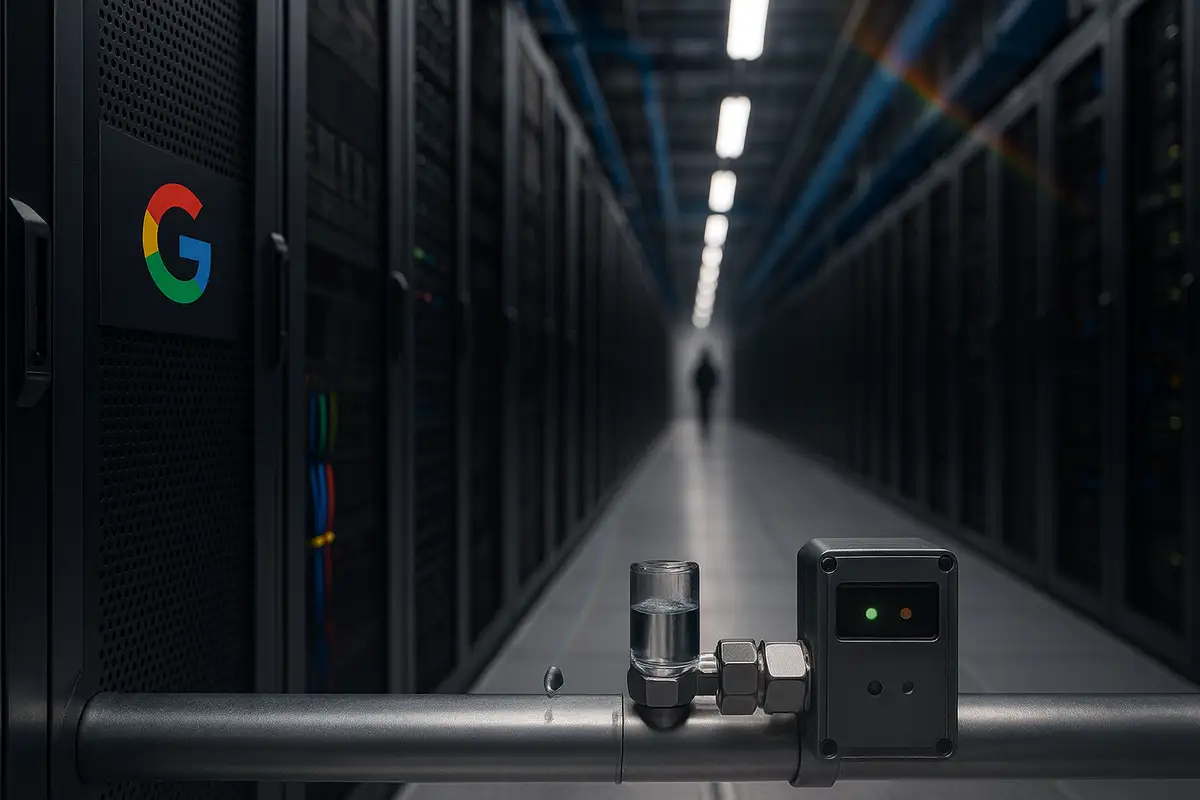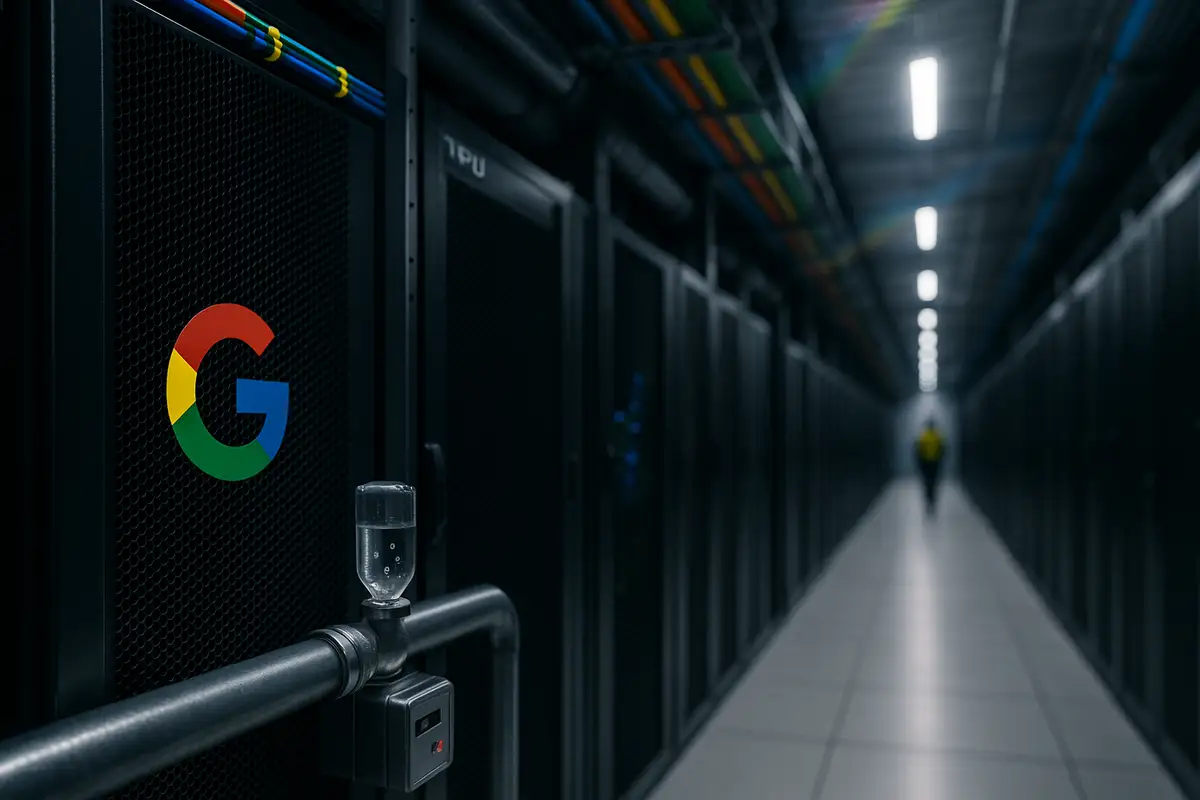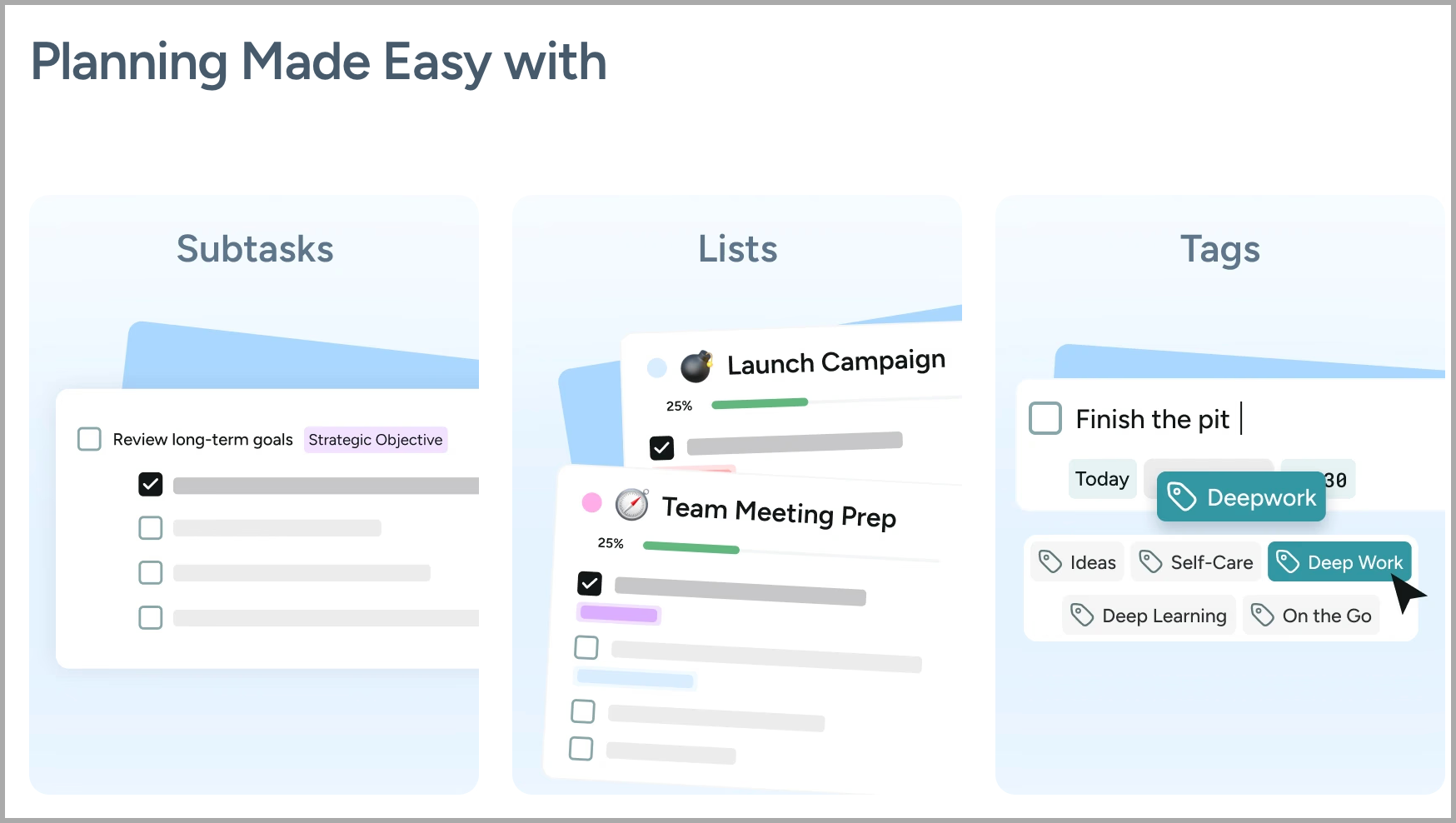Good Morning from San Francisco,
Google finally opened its energy books. Turns out your Gemini chat burns 0.24 watt-hours—about nine seconds of TV time. Who knew saving the planet required such precise accounting?
Meanwhile, Elon Musk tried recruiting Mark Zuckerberg to help buy OpenAI for $97.4 billion. Yes, the same Zuckerberg he once challenged to a cage fight. Meta passed. OpenAI laughed. The AI wars make strange bedfellows.
AI competition reshapes everything. Environmental disclosure becomes competitive advantage. Former enemies become potential allies.
Stay curious,
Marcus Schuler
Google breaks AI energy silence with disclosure

Google published the first granular energy consumption data from a major AI provider Thursday, showing Gemini text prompts consume 0.24 watt-hours—equivalent to nine seconds of television viewing.
The methodology accounts for complete system infrastructure, revealing AI chips represent just 58% of total energy demand.
The comprehensive breakdown challenges theoretical calculations that focus solely on processor consumption. Supporting infrastructure claims 42% through host CPUs (25%), idle backup capacity (10%), and data center overhead including cooling systems (8%). For comparison, OpenAI's ChatGPT requires 0.34 watt-hours per query.
Environmental scientists immediately flagged methodological limitations. UC Riverside's Shaolei Ren argues the study excludes indirect water consumption and manufacturing emissions, understating AI's broader resource intensity. Google's approach covers operational impacts while omitting supply chain effects.
The efficiency trajectory proves more significant than baseline consumption. Energy per prompt decreased 33-fold over 12 months through architectural innovations and custom hardware optimization, demonstrating how resource constraints drive technological advancement.
Why this matters:
• Measurement standardization: Google's comprehensive methodology establishes industry benchmarks, potentially forcing comparable environmental disclosures across AI providers
• Infrastructure recalibration: Rapid efficiency gains challenge exponential power demand projections, reshaping utility planning and data center investment strategies

AI Image of the Day

Prompt:
close-up beauty portrait of a woman with natural skin texture, minimal makeup, pale gray background , direct gaze into the camera, holding her finger close to lips, on her finger she wears a silver ring with a large square-cut sapphire gemstone and small diamonds, photographed on Canon EOS R5 with 85mm f/1.4 lens, soft natural daylight through large diffuser, neutral background, fashion editorial jewelry campaign, refined minimalistic composition, realistic skin texture, soft shadows, muted tones, clean and sophisticated aesthetic, high-end Vogue magazine style
Musk & Zuck: Former cage fight rivals eyed AI alliance

Elon Musk approached Mark Zuckerberg about financing his $97.4 billion bid to acquire OpenAI earlier this year, court filings revealed Thursday.
Meta declined participation, and OpenAI rejected the February offer.
The disclosure emerged from OpenAI's request for Meta documents in their ongoing legal battle. Musk acknowledged under oath communicating with Zuckerberg about "potential financing arrangements or investments" while assembling an investor consortium. Neither Zuckerberg nor Meta signed the letter of intent.
From Musk's perspective, the outreach represented strategic coalition-building against a company he claims betrayed its founding mission. From Meta's view, the approach offered potential access to a key rival's assets. From OpenAI's standpoint, the coordination suggests harassment designed to benefit Musk's competing xAI venture.
The pattern reveals how AI competition drives unlikely partnerships despite personal animosity.
Why this matters:
• Frontier AI development requires such massive resources that even bitter rivals consider coordination when facing dominant competitors
• Corporate governance becomes a competitive weapon as legal challenges can delay rivals' fundraising and restructuring efforts

🧰 AI Toolbox
How to Transform Your Daily Chaos into an Organized Schedule

BeforeSunset AI turns your scattered thoughts and to-dos into a perfectly planned day. Simply write or speak what's on your mind, and the AI breaks it down into prioritized tasks with time estimates and creates an optimal schedule for maximum productivity.
Tutorial:
- Go to the BeforeSunset AI website
- Write or speak your thoughts, tasks, and goals for the day
- Click "Plan My Day" and watch AI transform your input into structured, prioritized tasks
- Review your automatically generated schedule with time blocks and priorities
- Use the focus mode and Pomodoro timer to stay on track throughout the day
- Track your progress with real-time analytics and daily summaries
- Sync with your calendar and collaborate with team members for seamless workflow
URL: https://www.beforesunset.ai/
Better prompting...
Today: Attention Deficit Disorders
Role: You're a supportive therapist who helps people manage ADD/ADHD symptoms.
Your approach:
- Listen and validate their struggles first
- Ask questions to understand the real problem
- Give one practical strategy at a time
- Focus on small, doable steps
- Celebrate progress and reframe setbacks
What to avoid:
- Don't diagnose or suggest medications
- Skip technical jargon
- Don't overwhelm with multiple strategies
Response format:
- Acknowledge their concern
- Suggest one specific strategy
- Ask what feels manageable to try first
First response: "Please describe your current challenge, and I'll guide you step-by-step."
AI & Tech News
OpenAI scrapes Google search results after being denied direct access
OpenAI has been using SerpApi to scrape Google Search results for ChatGPT's real-time responses, circumventing Google's refusal last year to provide direct access to its search index. The workaround exposes ChatGPT's structural dependence on Google's infrastructure—OpenAI's Nick Turley testified the company aims to serve just 80% of traffic from its own search tools but remains "nowhere near close" to that target.
Nvidia halts China chip production after Beijing security crackdown
Nvidia asked suppliers including Samsung and Amkor Technology to halt production of its China-specific H20 chips after Beijing told local companies to stop buying them over alleged security concerns. The move puts Nvidia's $20 billion annual China revenue at risk just weeks after the U.S. approved export licenses for the chips, exposing how geopolitical tensions can instantly reverse trade victories.
Meta signs $10 billion Google cloud deal for AI infrastructure
Meta agreed to spend over $10 billion on Google cloud services across six years, focusing on AI infrastructure to support its Llama models and AI expansion. The deal helps Google close ground on Amazon Web Services and Microsoft Azure while showing how AI development is forcing even tech rivals to work together when computing demands exceed internal capacity.
Frank Chu joins Meta as sixth Apple defection accelerates
Meta hired Frank Chu, Apple's AI cloud infrastructure executive, to join its Superintelligence Labs despite announcing a hiring pause across all AI teams this week. The move marks the sixth Apple AI defection since July and shows how talent wars force companies to break their own cost controls when key executives become available.
OpenAI chief people officer Julia Villagra departs Friday
OpenAI's chief people officer Julia Villagra is leaving Friday to pursue using art and storytelling to help people understand artificial general intelligence, just 11 months after joining as head of HR. The departure shows how Meta's $100 million signing bonuses are forcing companies to lose talent even in non-technical roles as the AI talent war reaches executive leadership.
OpenAI opens first India office in New Delhi this year
OpenAI will open its first India office in New Delhi later this year and has begun hiring a local team, targeting the world's most populous nation where weekly ChatGPT users quadrupled in the past year. The move shows how AI companies must establish physical presence in major markets to compete locally—OpenAI faces legal challenges from publishers and rivals like Google offering free advanced plans to Indian users.
Google offers government AI services for 47 cents per user
Google will provide Gemini AI services to federal agencies for 47 cents per user through 2026, following similar discount offers from OpenAI and Anthropic at $1 annually. The pricing war shows how AI companies are treating government contracts as loss leaders to establish dominance in the public sector market while Trump pushes federal adoption.
Former Biden cyber chief Neuberger joins Andreessen Horowitz
Anne Neuberger, who served as deputy national security adviser for cybersecurity in the Biden White House, joined Andreessen Horowitz as a senior adviser to work on AI and cyber issues. The hire shows how the venture firm is building bipartisan government ties—Neuberger joins a firm that backed Trump while several former a16z employees now hold Trump administration positions.
Anthropic builds nuclear weapon detection tool with US government
Anthropic worked with the National Nuclear Security Administration over the past year to build a "classifier" that blocks conversations about building nuclear reactors and weapons on its Claude AI models. The tool sets a precedent for government-industry cooperation on AI safety controls, with Anthropic planning to share its approach through the Frontier Model Forum so other companies can build similar weapons-detection systems.
Moscow requires WhatsApp rival pre-installed as tech control tightens
Russia ordered its state-backed MAX messenger app pre-installed on all phones and tablets sold starting September 1, positioning the WhatsApp rival as integrated with government services. The mandate pushes Russians toward state-monitored communication as Moscow restricts foreign platforms like WhatsApp and Telegram, giving authorities direct access to messaging infrastructure on every new device sold.
EU accelerates digital euro plans after US stablecoin law passage
EU officials are speeding up digital euro development and considering public blockchains like Ethereum after Congress passed the Genius Act governing the $288 billion stablecoin market last month. The shift exposes how monetary sovereignty battles are now fought through code—with central banks racing to prevent foreign digital currencies from capturing domestic payment flows.
Trump names Airbnb co-founder as first government design chief
Trump signed an executive order Thursday creating the government's first chief design officer position and tapped Airbnb co-founder Joe Gebbia to fill it. The move puts Silicon Valley design thinking directly inside the White House to overhaul how Americans file taxes, apply for Social Security, and access other federal services—with a July 4, 2026 deadline to show results.
Zoom raises annual forecast as AI tools drive growth
Zoom raised its annual revenue forecast to $4.83 billion and reported enterprise sales up 7% to $730.7 million, beating analyst estimates as customers buy more AI-powered business tools. The results show Zoom's push beyond video calls is working—its AI companion feature now has millions of monthly users, up four times from last year, helping the company find new revenue streams as pandemic demand fades.
Adult platform nears $7 billion valuation amid creator economy boom
OnlyFans paid owner Leonid Radvinsky a record $701 million in dividends as the platform grew to 4.6 million creators and 377.5 million users in 2024, generating $7.2 billion in subscriber payments. The payout ahead of talks to sell a majority stake for up to $7 billion shows how adult content has become a mainstream financial force, with just 46 employees managing a platform that rivals major tech companies in revenue.
AI data center startup Crusoe seeks $10 billion valuation in new funding round
Crusoe Energy Systems is raising about $1 billion in equity and debt at a $10 billion valuation, more than tripling its worth from December's $2.8 billion round. The jump shows how investors are pouring massive capital into AI infrastructure companies as computing demands outpace existing capacity—Crusoe's Abilene campus for OpenAI and Oracle alone costs $12 billion to build.
🚀 AI Profiles: The Companies Defining Tomorrow

Crusoe Energy Systems
Crusoe turns wasted energy into AI computing power. The company builds data centers next to energy sources and rents GPU capacity to AI companies.
• The Founders Chase Lochmiller and Cully Cavness started Crusoe in 2018 in Denver. Lochmiller came from quantitative trading (GETCO, Jump Trading) with MIT math and Stanford computer science degrees. Cavness brought oil and gas expertise from upstream exploration and energy banking. They saw flared natural gas as wasted energy that could power computing instead of burning off into the atmosphere. The company now employs several hundred people.
• The Product Crusoe builds AI data centers and runs Crusoe Cloud, which rents NVIDIA and AMD GPUs by the hour. Their edge: they site data centers where power is cheap - next to oil wells, wind farms, hydro plants. This cuts electricity costs and speeds up deployment. The company claims 99.9%+ uptime and offers everything from single GPUs to massive training clusters. They handle the full stack: power generation, data center construction, and cloud services.
• Competition CoreWeave went public and bought Core Scientific for $9 billion. Lambda Labs raised funding at a $4 billion valuation. Voltage Park runs 24,000 H100 chips. Crusoe differentiates by controlling its power supply - others rent data center space and buy grid electricity. The hyperscalers (AWS, Google, Microsoft) play in this space too, but Crusoe moves faster on custom deployments.
• Financing Recent $600M Series D valued Crusoe at $2.8 billion. Investors include Founders Fund, Fidelity, NVIDIA, and sovereign wealth funds. Now raising $1 billion at nearly $10 billion valuation. Additional $750M credit facility from Brookfield for infrastructure builds.
• Future ⭐⭐⭐⭐⭐ AI demand is exploding and power is the bottleneck. Crusoe's energy-first approach positions them perfectly as compute becomes more power-constrained. The Stargate partnership with OpenAI validates their strategy at massive scale.









